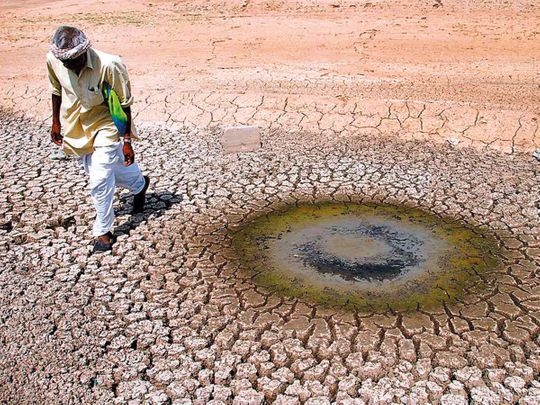
Aurangabad: As if fear of erratic rains and crop failure wasn’t bad enough for farmers, their profession has made it harder to find a spouse.
With low income and debt traps becoming synonymous with the profession, no family wants to marry off their daughter to a farmer.
Ghatnandra village in Marathwada region’s Aurangabad district is dotted with houses of unwed young men; almost every second home has a young bachelor. Parents of most unmarried men refuse to speak about marriage altogether.
In Ghatnandra, Revannath Wagh reminisces about how the situation was completely different when his eldest son got married 22 years ago. Wagh is a priest and owns some land. He has three sons and two daughters. He says even in 2007 he didn’t face any difficulty finding a bride for his second son.
He began feeling a shift in the scenario when they started looking for a bride for Ram, the youngest of the three brothers. They spent almost five years, searching until 2018, when Ram married a girl from Chalisgaon village in Dhulia district, who incidentally is physically challenged.
Deepak Jadhav, founder-director of matrimonial firm Marathajodi.com, says delayed weddings of men are looked down upon. He reveals that out of around 4,000 women looking for a spouse, barely three to four choose farming as the profession of their prospective partner.
“Even the girls who belong to farmer families are not willing to marry a farmer,” he notes.
Until 2016, he used to match 75 couples a year. Now, he’s able to fix barely 20-25 weddings a year.
“Everything was fine till a decade ago. But the trend tremendously changed. If the girls are not ready to marry rural boys, what will the boys do? Parents need to change their mind set. Like farming, there is no guarantee of jobs in cities,” he opines.
Bhaskar Gawande, a farmer from Chitte Pimpalgaon village in Paithan tehsil, says when it comes to marriage, it doesn’t matter how many acres of land a farmer owns. He says it’s common knowledge that if a farmer has to raise money for a health emergency or children’s education, he has no option but to sell his land. That is why he says parents of young women prefer a groom with a fixed salary.
“Even owners of grocery shops or wheat mills can find a girl for marriage but farmers can’t,” Gawande said.
According to him, this situation became particularly acute after the 2016 drought. In 2016, he expected a yield of 200 quintals of soya bean but got only 65 quintals. As he didn’t want his son to face such hardships, he sent him to Aurangabad to pursue engineering and asked him to stay away from farming.
Dr Smita Awchar, a professor in the Department of Sociology at Dr Babasaheb Ambedkar Marathwada University in Aurangabad, contends that the imbalance in the gender ratio is another reason there are too few prospective brides for too many grooms. Thus, she says, young women in the region have a choice to select their life partner.
She says other reasons women are reluctant to marry a village-dweller are poor roads and patchy availability of water, electricity, cooking gas, mobile connectivity etc.
Kishore Shitole, founder-director of NGO Jaldoot (dedicated to water conservation projects in rural areas) and a governor-nominated member in Dr Babasaheb Ambedkar Marathwada University Senate, frequently visits the villages in the region. He seconds Dr Awchar’s statement that women prefer a partner with a job over a farmer.
“Cities are land of opportunities. Even if it comes to the education of their kids, there is no good facility in villages. Villages lag behind at every front,” he says.












